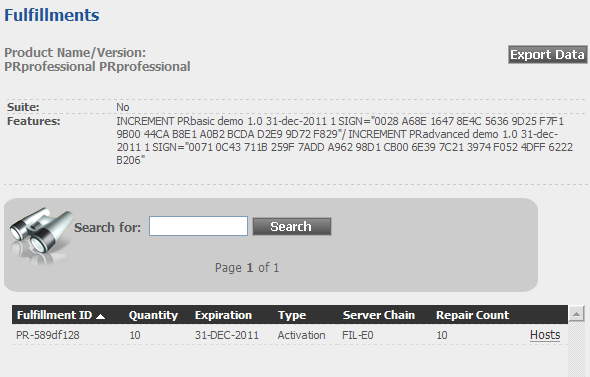License Files and Fulfillment Records
The license model is defined primarily in the feature definition lines (FEATURE and INCREMENT) in a license file. There are the same feature definition lines inside fulfillment records in trusted storage. See the following diagram that shows a typical lmadmin display for a fulfillment record.

License server fulfillment record displayed by lmadmin
The fulfillment record PR-589df128 provides 10 activatable licenses for the product PRprofessional. Each activatable license licenses two features: PRbasic and PRadvanced. These two feature definition lines (in this example INCREMENT lines) are packaged together in a single fulfillment record.
Licenses held in trusted storage use all the mandatory fields and may contain most of the attributes described in Reading a License File. The following are the exceptions:
|
•
|
SUPERSEDE—This feature definition line attribute is not supported for licenses held in trusted storage. A combination of return and activation operations are used to remove the license for the old version of the application and replace it with a new license. |
The following line types are not supported in trusted storage:
|
•
|
UPGRADE (a combination of returns and activations are used for an upgrade) |
|
•
|
PACKAGE (a fulfillment record effectively packages multiple feature definition lines) |
Note: When other functions for package suites are required, a license file with a PACKAGE line can be provided.
|
•
|
VENDOR (lmadmin provides direct vendor-daemon configuration) |
|
•
|
VM_PLATFORMS (not needed) |
|
•
|
USE_SERVER (not needed) |
